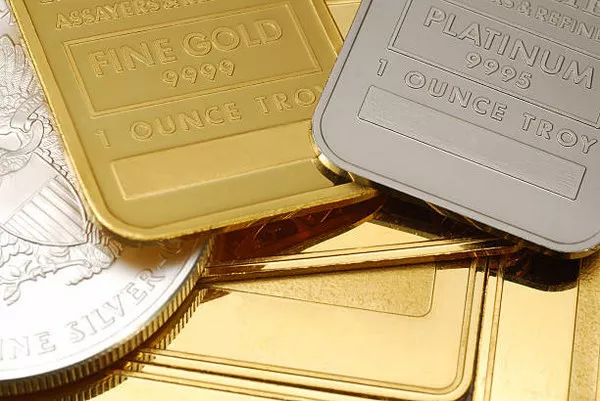The question of whether it is legal to melt down silver coins is multifaceted, encompassing aspects of numismatic value, historical significance, and legal statutes. As silver prices fluctuate and collectors vie for rare pieces, understanding the legal landscape surrounding the melting of silver coins is crucial for both collectors and investors.
Historical Context and Legal Background
Historically, coins have been minted from precious metals, including gold, silver, and copper. Silver coins, in particular, have been valued not only for their face value but also for their intrinsic metal content. However, the melting down of these coins has been a contentious issue, largely because of the potential impact on the monetary system and coin collectors.
In the United States, the legality of melting down coins has seen several changes over the years. During times of economic distress or metal shortages, the government has imposed restrictions to prevent hoarding and ensure sufficient circulation of currency. For instance, during the 1960s, as the price of silver rose significantly, the U.S. government removed silver from most coins to prevent them from being melted down for their metal content.
Current Legal Status in the United States
As of now, the legal framework in the United States regarding the melting down of silver coins is relatively clear but varies based on the type of coin. The key legislation governing this issue is the United States Code, Title 31, Section 5111(d), which addresses the melting and exportation of coins.
Circulating Coins: According to the U.S. Mint regulations, it is illegal to melt down any U.S. pennies and nickels. This restriction is in place to prevent the illegal export and melting of these coins for their metal content, which often exceeds their face value. The ban was first implemented in 2006 and remains in effect today.
Non-Circulating Coins: For coins not intended for regular circulation, such as commemorative or bullion coins, the laws are less restrictive. The U.S. Mint produces silver bullion coins, like the American Silver Eagle, which are explicitly designed for investment purposes. These coins can be legally melted down, provided that the melting is done within the legal framework and does not violate any other statutes.
Historical and Numismatic Coins: The legality of melting down older coins, especially those with historical or numismatic value, can be more complex. While there is no outright federal ban on melting down silver coins minted before 1965, which contain 90% silver, doing so can still be controversial. Numismatic coins often hold value far beyond their metal content, and melting them down could be seen as a loss to the historical and collectible community.
International Perspectives
The legal status of melting down silver coins varies significantly across different countries. Many nations have specific laws regulating the destruction or melting of their currency, driven by concerns similar to those in the United States, including preventing metal hoarding and preserving cultural heritage.
Canada: In Canada, it is illegal to melt down any Canadian coins. The Royal Canadian Mint Act prohibits the defacement, mutilation, or destruction of any current coin.
European Union: The regulations in the European Union are more complex due to the diverse legal systems of member states. Generally, it is illegal to melt down euro coins, but the specifics can vary. Each country may have additional regulations regarding their national coinage.
United Kingdom: In the UK, it is illegal to melt down current coins, as per the Coinage Act 1971. However, there are no specific laws against melting pre-decimalisation coins, which contain higher percentages of silver.
Economic and Ethical Considerations
The legalities of melting down silver coins are not solely dictated by statutory regulations but also by economic and ethical considerations. The intrinsic value of silver coins can sometimes overshadow their face value, leading to the temptation to melt them for profit. However, this practice can have broader implications.
Market Impact: Melting down large quantities of silver coins can affect the coin market. By reducing the number of coins in circulation, it can increase the rarity and numismatic value of remaining coins. This can be beneficial for collectors but can also lead to inflation in coin prices, making it difficult for new collectors to enter the market.
Cultural Heritage: Coins are a part of cultural and historical heritage. Melting down coins, especially those with historical significance, can lead to the loss of valuable artifacts. Museums and collectors often argue against the melting of such coins, advocating for their preservation.
Investment Considerations: For investors, the decision to melt down silver coins often comes down to a cost-benefit analysis. While melting down coins can yield immediate profits from the sale of silver, holding onto the coins might offer better long-term gains, especially if the coins appreciate in numismatic value.
Practical Implications for Coin Owners
For individuals owning silver coins, understanding the legal and practical implications of melting down their coins is essential. Here are some key considerations:
Assessing Value: Before deciding to melt down a silver coin, owners should assess its numismatic value. Coins with historical significance or rarity often command higher prices among collectors than their melt value.
Legal Compliance: Coin owners should ensure they comply with all relevant laws. This includes checking federal, state, and local regulations to avoid legal repercussions.
Alternative Options: Rather than melting down coins, owners might consider selling them to collectors or dealers. This not only preserves the coins but can also potentially yield higher returns.
See Also Where to Sell Silver Bars
Conclusion
The legality of melting down silver coins is governed by a complex interplay of laws, economic factors, and ethical considerations. While certain coins can be legally melted down, others are protected by stringent regulations. Coin owners and investors must navigate these legalities carefully, balancing potential profits with the broader implications for the numismatic community and cultural heritage. As silver prices continue to fluctuate, the decision to melt down silver coins remains a significant one, requiring careful consideration of all factors involved.


